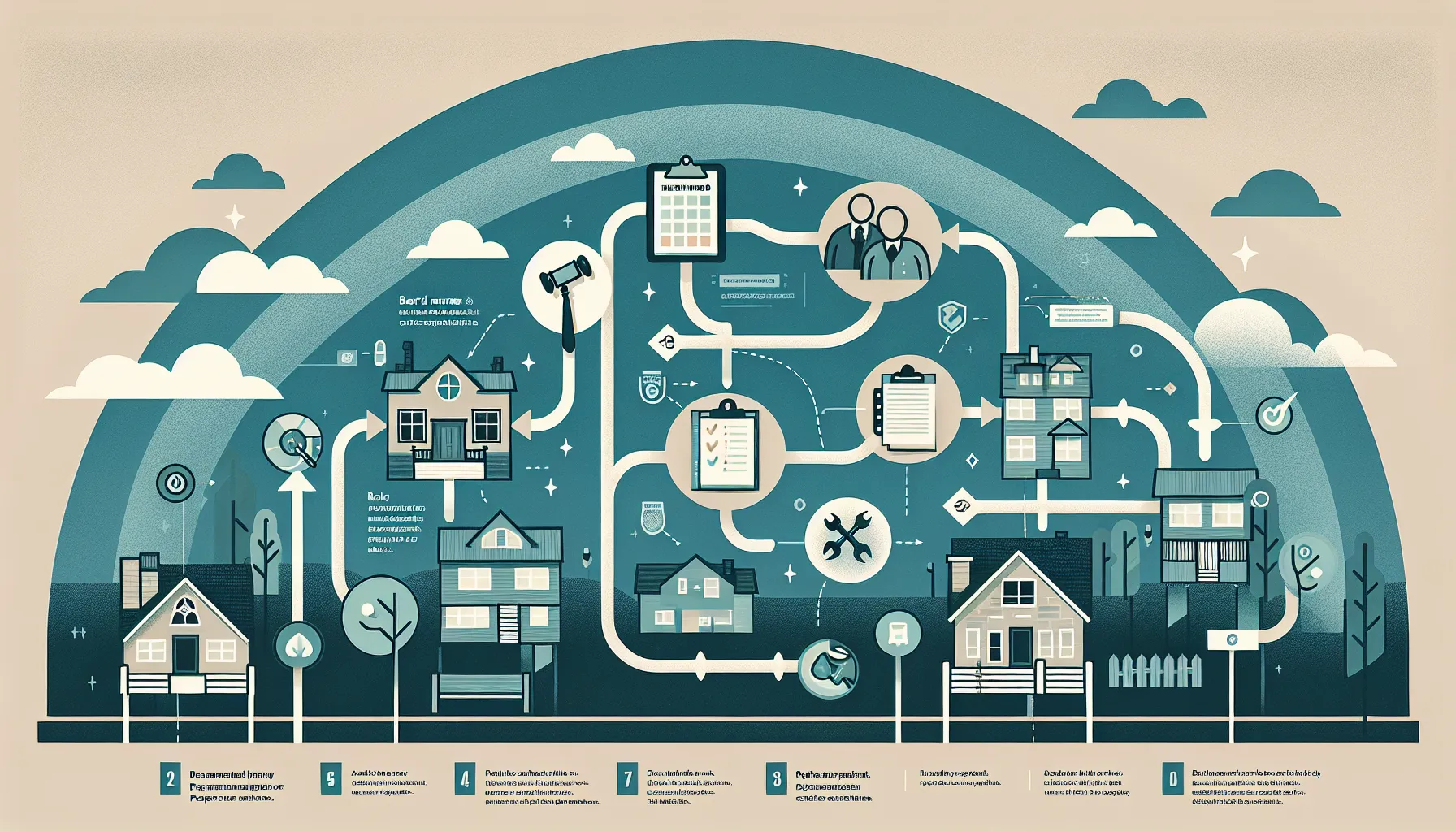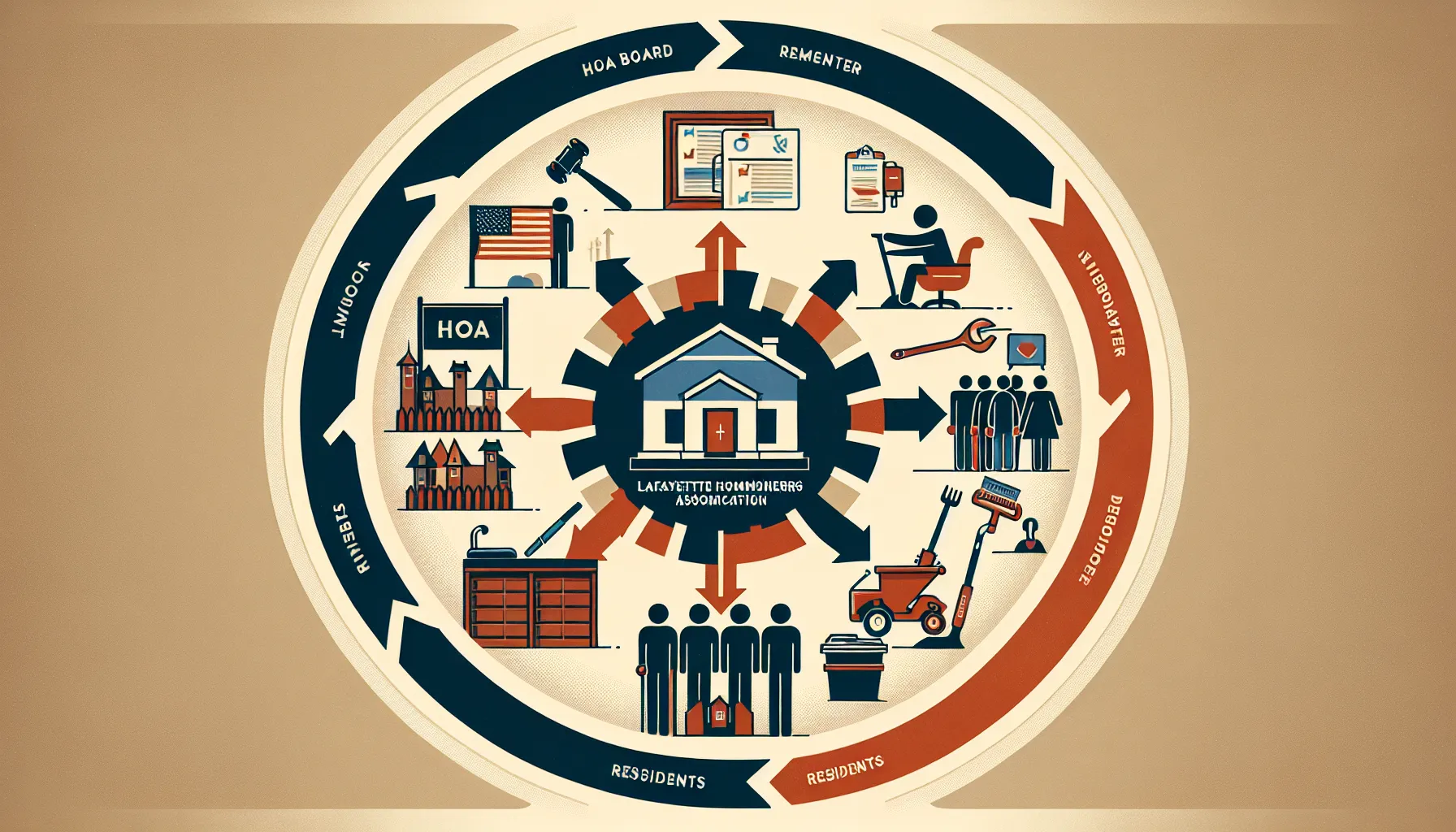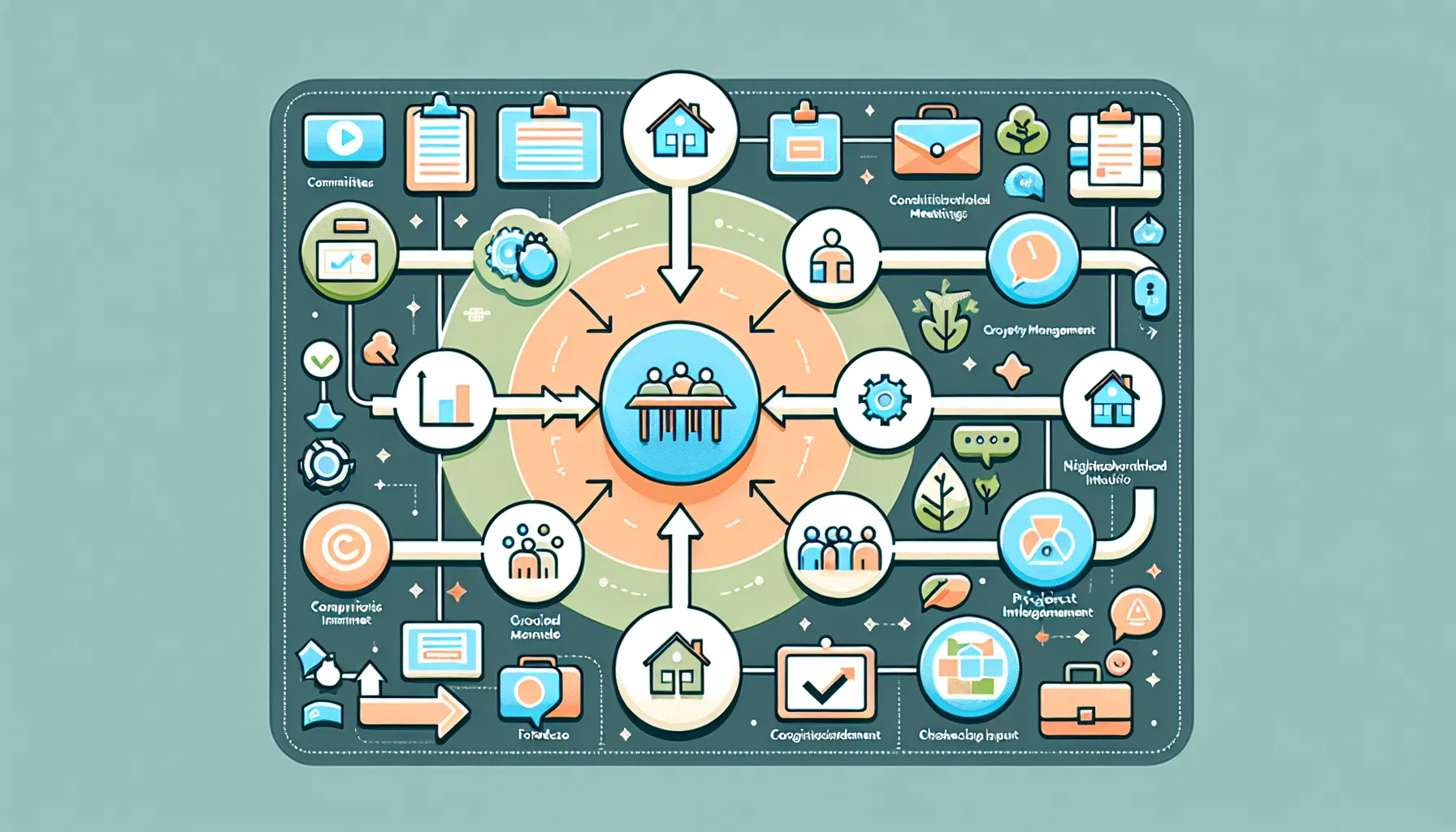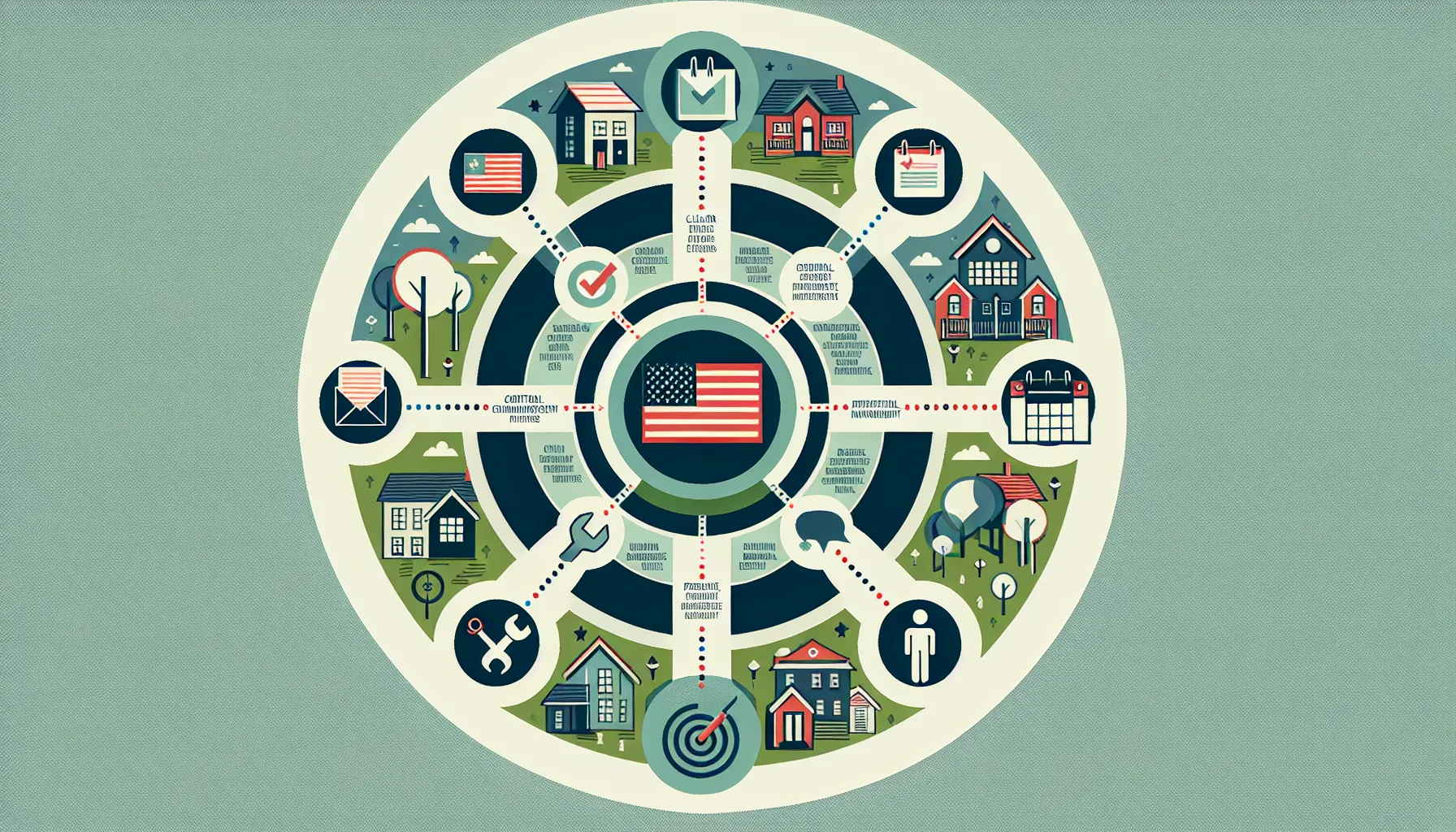Managing a property or community in Lafayette brings real opportunities, and a few natural hurdles. If you’re a homeowner, investor, or board member, you already know how important clear HOA coordination is for the smooth running of your community. Have you ever felt overwhelmed by the rules, meetings, or the never-ending stream of maintenance requests? You’re not alone. HOA coordination can feel complicated, but with the right information, it becomes a valuable tool for property protection and resident satisfaction.
In this guide, I’ll break down the essential elements of HOA coordination in Lafayette. My aim is to make sure you walk away with practical insight, greater confidence, and clear steps you can take to streamline operations and create a harmonious living environment.
Key Takeaways
- Effective Lafayette HOA coordination relies on clear communication between board members, property managers, and residents.
- Assigning clear roles and responsibilities helps streamline operations and ensures accountability within the HOA.
- Utilizing regular meetings, digital tools, and transparent procedures fosters trust and keeps the Lafayette community informed.
- Professional property management can enhance HOA coordination by handling compliance, maintenance, and resident support efficiently.
- Proactive legal and regulatory compliance protects Lafayette HOA communities from fines and disputes.
- Inviting resident involvement and feedback helps build a resilient, harmonious Lafayette HOA.
Understanding HOA Coordination in Lafayette

Homeowners’ associations (HOAs) are more than just a rulebook. In Lafayette, an HOA acts as the nerve center of a residential community, making decisions about appearance, safety, shared spaces, and day-to-day management. But what exactly does HOA coordination involve?
At its core, it’s about bringing together board members, property managers, residents, and service providers to keep everything running smoothly. Communication is crucial, without strong collaboration, misunderstandings or neglected tasks pile up fast. Whether you’re managing a single-family home within an HOA or an entire condo building, successful coordination means meetings are productive, issues get addressed quickly, and everyone stays on the same page.
Lafayette, with its attractive neighborhoods and active resident involvement, benefits greatly from well-coordinated HOAs. A good example: timely notice of landscaping upgrades or maintenance, so residents aren’t caught off guard. This kind of predictability promotes trust and helps avoid disputes down the road.
Key Roles and Responsibilities of HOAs

Understanding who does what within an HOA can make daily operations smoother for everyone involved. The HOA board is typically made up of elected volunteers who set policies, manage budgets, and make big-picture decisions. They’re responsible for planning meetings, reviewing proposals, and connecting with residents.
A property manager, which is often a service hired by the HOA, steps in as the operational backbone, taking care of rent collection, maintenance scheduling, and all the essential paperwork. My experience tells me these professionals serve as valuable bridges between board members and residents, resolving conflicts and ensuring compliance with community standards.
Residents play a major part, too. By following HOA guidelines, attending meetings, and voicing concerns constructively, they keep the system responsive and fair. Finally, service providers (think landscapers, repair crews, and security companies) help maintain the neighborhood’s look and functionality.
When everyone recognizes their part and communicates honestly, there’s a lot less friction, leaving more time and energy for truly enjoying life in Lafayette.
The Coordination Process: How HOAs Collaborate

HOA coordination might sound like a lot of meetings and paperwork, but beneath the surface, it’s about efficient teamwork. Every successful HOA in Lafayette depends on clear lines of communication, from the first planning meeting to the daily operations. I find that setting up recurring meetings, whether monthly or quarterly, keeps issues from festering and lets board members stay updated on ongoing projects.
Here’s how the process usually unfolds:
- Regular Board Meetings: Agendas are distributed ahead of time, allowing board members and homeowners to prepare their comments and questions.
- Committee Work: Special committees, like landscaping, finance, or social, tackle specific projects and report back with recommendations.
- Property Management Coordination: The property manager provides status reports, fields resident requests, and enlists contractors for repairs or improvements.
- Resident Feedback: Surveys, suggestion boxes, and online portals let homeowners voice concerns or share new ideas.
- Project Implementation and Follow-up: Once decisions are made, timelines are set. Progress is tracked closely, and everyone is updated on milestones or delays.
I’ve learned that digital tools like shared calendars and document repositories are a lifesaver. Not only do they centralize information, but they also keep everyone accountable and on schedule.
Common Challenges in HOA Coordination

Coordinating an HOA brings its share of speed bumps, and ignoring them rarely works. One issue I often see is miscommunication, emails missed, meeting notes not shared, or mixed messages about community rules. It may seem small, but confusion like this can quickly escalate.
Budget disagreements are another frequent obstacle. Board members sometimes struggle to prioritize spending on maintenance, improvements, or amenities. Without open dialogue, this can create tension or delay important projects.
Balancing the interests of residents with those of landlords or investors can be tricky. For instance, a landlord invested in maximizing rental returns may have different priorities than a family concerned about playground safety or community events.
Finally, finding volunteers or board candidates isn’t always easy. People lead busy lives and may hesitate to get involved, leaving current board members stretched too thin. Recognizing these patterns early lets me step in with solutions before frustrations set in.
Best Practices for Effective HOA Coordination

Effective HOA coordination hinges on a foundation of trust, transparency, and consistent communication. Here’s how I approach this in Lafayette:
- Set Clear Expectations: Every player, board members, managers, and residents, should know their responsibilities. Written policies and transparent procedures help remove gray areas and misunderstandings.
- Foster Open Communication: I encourage regular updates through newsletters, emails, or online portals. Even short status reports can make residents feel informed and valued.
- Prioritize Preventive Maintenance: Scheduling routine inspections and maintenance keeps costs in check and properties in good shape. For example, semi-annual inspections show residents and owners that proactive care matters.
- Make Use of Professional Management: Bringing in a professional property manager can free up board members’ time while providing expertise in problem-solving, rent collection, and legal compliance. I see firsthand how this results in smoother operations and happier residents.
- Embrace Resident Involvement: Giving homeowners a voice through committees, surveys, or public forums supports buy-in and strengthens the community spirit. When people feel heard, cooperation becomes much easier.
By following these practices, HOA boards and residents can create a community where everyone’s interests are respected, and challenges get resolved quickly.
Legal and Regulatory Considerations
Staying compliant with laws and regulations is a must in Lafayette. I always keep up with California’s Davis-Stirling Act, which governs common interest developments statewide, as well as any city and county rules. From my perspective, knowledge of these laws not only helps avoid fines but also keeps the community operating on solid footing.
Meeting notice requirements, handling election procedures ethically, and dealing fairly with disagreements all require a close reading of legal language. That’s where a skilled property manager or legal advisor comes in handy, they can interpret statutes and advise on best next steps.
Don’t forget: financial reporting, annual disclosures, and fair housing laws all impact HOA decisions. Ignoring them can have serious consequences. So, I make a habit of consulting experts, keeping documents organized, and staying nimble when updates arrive.
Regular legal check-ins, especially before making major changes or launching new projects, help prevent surprises and protect everyone’s interests.
Conclusion
Coordination within a Lafayette HOA doesn’t need to be overwhelming. With clear communication, shared responsibility, and a keen eye on compliance, any board or property owner can foster a thriving community. I’ve seen the difference a well-run HOA can make, reducing conflict, protecting investments, and making daily life feel a little more relaxed.
Are you ready to bring your HOA’s coordination to the next level? The first step is often the simplest: start a conversation, ask questions, and seek experienced support if you need it. In my experience, it’s those small, consistent actions that build the most resilient and harmonious communities.
Frequently Asked Questions about Lafayette HOA Coordination
What is Lafayette HOA coordination and why is it important?
Lafayette HOA coordination refers to the collaboration among board members, property managers, residents, and service providers to ensure the smooth management of a community. Effective coordination maintains property values, addresses maintenance issues, and creates a harmonious living environment for everyone involved.
How do regular meetings benefit HOA coordination in Lafayette communities?
Regular meetings in a Lafayette HOA provide a structured space for discussing priorities, sharing updates, and resolving concerns. They allow the board to set agendas, collect resident input, and keep projects on track, which promotes transparency and trust within the community.
Who is responsible for daily operations in a Lafayette HOA?
Daily operations in a Lafayette HOA are typically handled by both the property manager and the HOA board. The board sets policies and manages budgets, while the property manager oversees tasks like maintenance scheduling, rent collection, and communication with residents.
What common challenges do Lafayette HOAs face with coordination?
Common challenges in HOA coordination include miscommunication, budget disagreements, balancing differing resident interests, and difficulty finding volunteers for board positions. Proactive communication and clear role definitions help overcome these obstacles.
What legal requirements must Lafayette HOAs follow?
Lafayette HOAs must comply with California’s Davis-Stirling Act and relevant city or county rules. Key obligations include proper meeting notices, ethical election procedures, financial reporting, and adherence to fair housing laws to ensure legal compliance and avoid penalties.
How can technology improve HOA coordination in Lafayette?
Technology such as shared calendars, document repositories, and online communication portals can centralize information, enhance accountability, and streamline operations, making Lafayette HOA coordination more efficient and transparent for all members.
